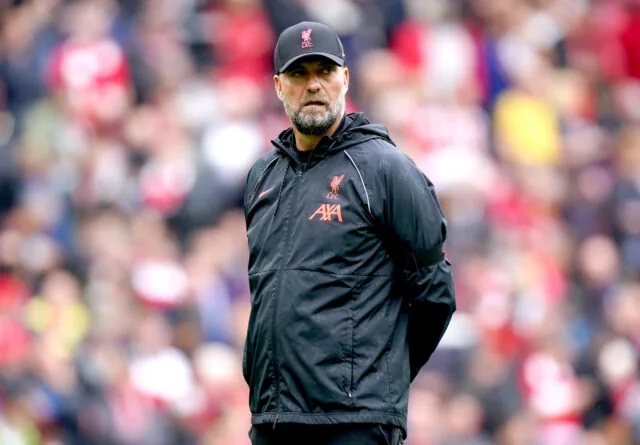A week in football, the saying goes, is a long time. On the pitch that may be true but off the pitch the problems facing troubled clubs aren’t much different from the problems of last week, last month, or even last year.
Last week this column highlighted the plight of Weymouth, Salisbury and Lewes, and their problems don’t look like getting better for any of them. Meanwhile many of the clubs I’ve written about over the past nine months could easily have made a follow-up piece this week.
In the midst of this, Dave Stopher’s comment on last week’s writings raised a point that’s been playing on my mind for the past week. “Maybe,” said Dave, “The FA should try and help out more.”
It’s a fair question, and one that the majority of football fans have probably asked when reading assorted tales of doom and collapse. But if we’re getting the governing body involved, what can they actually do? And would their actions end up hurting football as much as the intention is to save it?
Can the FA set up a fund to help bail out clubs who hit financial problems?
On the surface, this would appear to be the easiest option for the authorities. We’ve seen governments bail out financial institutions in the past months because their collapse would be catastrophic, so could something similar not be set up for football clubs? Simple, no?
The trouble here is that while football clubs are important to their communities, they’re hardly in the same league as banks when it comes to their collapse (although liquidation will hurt the local businesses who deal with them on a regular basis more than anybody). Many football clubs also make the banks look like shining examples of financial restraint.
Such a solution would only be a last-ditch, short-term one, much like the footballing equivalent of plugging a hole in a dyke with your finger. More importantly, it would hardly encourage clubs to live within their means.
Take Weymouth, for example. Under former chairman Martyn Harrison, they ran up debts of around £3m in just under two years before Harrison pulled the plug on his financial investment.
If a team in that situation knew the FA would bail them out, no matter what, there’s no incentive for them to stop amassing even higher debts. As simple a solution as this would be, in practical terms it’s a non-starter.
Why don’t the authorities impose harsher penalties on clubs that live beyond their means?
There’s an argument for saying the current penalties are already pretty draconian. Certainly, the Football League’s penalties for entering and exiting administration have resulted in the weird mini-relegation league at the bottom of League Two, with Luton, Rotherham and Bournemouth all starting the season on minus points.
Teams going into administration can immediately expect a ten point deduction, with a further points deduction if they fail to agree a CVA with 75% of their non-footballing creditors on exiting administration. Judging by recent cases, 15 points seems to be the standard penalty, although that’s not fixed in stone.
In theory, this should act as a deterrent. In practice, it rarely does. Football chairmen, largely, tend to be a very short-term bunch of thinkers and will spend large amount of money they don’t have chasing a dream they rarely attain. And quite often they’ll have been long gone by the time the club goes into administration, leaving a new regime with no connection to the debt paying for a past regime’s sins.
Luton, Rotherham and Boston are all examples of clubs who’ve had the punishments handed out to a board who’re completely removed from the people who originally got the club into the mess in the first place. So teams are punished but those who ran up the debt usually escape with little more than a slap on the wrist.
The Blue Square Premier is one league that is leading the way in this regard. All member clubs must open their books for inspection and adhere to a salary cap, while clubs with financial irregularities tend to get penalised. Boston (again) are a club that’s been hit with these rules.
Following their relegation from the Football League two seasons ago, the Blue Square Premier refused to accept their entry for the following season and they were demoted to the Blue Square North. They now play in the Unibond Premier due to another enforced demotion over financial matters.
The Blue Square Premier may be more strictly enforced and more consistent than the Football League (it’s unlikely Luton or Rotherham would have faced such arbitrary punishments had they been playing in the division below their current position) but given the amount of clubs still on the critical or at risk list, the punishments clearly aren’t enough of a deterrent to clubs reaching beyond their dreams.
Interestingly, Michel Platini’s been pushing for a similar idea in recent months. The UEFA President has mooted the idea of a European Super-Regulator to enforce a set of financial criteria for taking part in the Champions League and UEFA Cup.
While this wouldn’t affect domestic leagues, it would make clubs at the top end of the scale think more about their finances. Running up excessive debts would see teams barred from European competitions and its questionable if any of the current “Big Four” would be allowed in. Which is precisely why the chances of it becoming reality are near to zero.
Can’t Premier League clubs help out teams further down the pyramid?
A week’s wages for the likes of Ronaldo and Lampard would almost certainly be able to haul a couple of lower league teams out of the financial mire, which just goes to emphasise the gap between the top and the bottom.
The Premier League is very much a free market and while there’s nothing wrong with this per se, it’s lead to a few unexpected consequences. Although this season is the most open at the top of the Premiership for years, it’s still the usual suspects battling it out.
Meanwhile the assorted club youth academies that hoover up the brightest young talent have come at the expensive of developing younger stars for the England team, and inflating prices for more established English players.
In business, the free market attitude would be much less of a problem. But then football clubs, despite their protestations that they’re just like any other business, would have collapsed long ago if they were in anything other than football. Very few successful companies would ever choose a football club as the basis of their model.
But for all this, football clubs at all levels are in the business of making a profit, or at least attempting to (very few actually manage this) and could quite justifiably ask why they should give up their hard-earned cash to help out another club just because that club happens to be in the same industry.
There’s a nagging suspicion that with the amount of cash floating around the Premier League, the bigger clubs could forgo the odd hundred thousand here or there the help out the grassroots, but there’s absolutely no way of forcing them to. Any attempt to do so would probably lead to further talk of breakaway leagues and threats to the power of clubs.
Can anybody help?
For all the criticism levelled at the FA, they’re not the worst shop stewards you could have. They’ve somehow managed to hold together a huge pyramid encompassing some of the world’s biggest and smallest clubs. But they’re still pretty helpless when it comes to clubs racking up thousands or millions of pounds worth of debts.
That the Blue Square Premier is one of the leading lights when it comes to forcing clubs to keep their houses relatively in order is hardly ideal, and even their measures are hardly preventative, judging by the number of problems clubs have experienced this season.
It’s always tempting to call for more regulation, but what regulation would help football in this country? A more streamlined and consistent approach to regulating off-the-field activities would help, but clubs will still overspend and get into debt.
Ultimately, that means you’ve got to come back to concluding that individual clubs are the only ones who can help themselves – something very few have so far managed to be able to do.
Add Sportslens to your Google News Feed!






